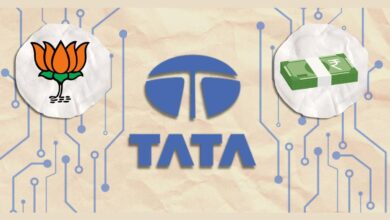
According to Adar Poonawalla of the Serum Institute, the Covovax vaccine for children would be available in six months.
Adar Poonawalla, CEO of the Serum Institute of India (SII), stated that the Novavax COVID-19 vaccine for children would be available in India in six months.
Serum Institute of India’s chief executive officer (CEO) is Adar Poonawalla (born January 14 1981). It was founded by his father, Cyrus Poonawalla, in 1966 and is the world’s largest vaccine maker in terms of doses manufactured.
In 920 participants aged >2 to 17 years, the Serum Institute of India is conducting a phase II/III clinical trial of Nanoparticle Vaccine (Liquid) (COVOVAX).
The National Expert Group on Vaccine Administration for Covid (NEGVAC) and the National Technical Advisory Group on Immunization (NTAGI) debate and weigh scientific data on immunization for children and beneficiaries under 18.

In India, the following COVID-19 vaccines are being tested in clinical trials for children under the age of 18:
COVAXIN is now undergoing a phase II/III clinical trial at Bharat Biotech, and temporary safety and immunogenicity results have been submitted to the Drugs Controller General of India (DCGI).
Biological E Ltd is undertaking a phase II/III clinical trial of the RBD of the SARS-CoV-2 gene in 624 children aged 5 to 18.
In the age category of 12-17 years, Johnson & Johnson Pvt. Ltd is undertaking Phase II/III clinical research of the Ad.26COV.2S vaccine (Global Clinical trial wherein India is one of the clinical trial sites).
The vaccine, according to Poonawalla, is the Covid-19 vaccine from the US biotechnology company Novavax, which his company would create and distribute locally as Covovax.
“In children, we haven’t seen a lot of severe sicknesses.” Children, thankfully, are not affected by panic. However, according to news agency PTI, we will be offering vaccination for them in six months, hopefully down to the age of three,” Poonawalla said at an industry conference in the national capital.
“Our Covovax vaccine, which is currently being tested and has shown fantastic results all the way down to the age range of three years,” he added.
The CEO of the Serum Institute also spoke out in favour of vaccinations for children. “Yes, I believe you should get your children immunized. There is no risk because these vaccines are both safe and effective. “Just wait for the government to make a statement, and then move forward,” he said.
Only individuals aged 18 and over are eligible to be vaccinated as part of the statewide immunization campaign, which began on January 16 this year. Only one vaccine, Zydus Cadila’s ZyCoV-D from Ahmedabad, has been issued an Emergency Use Authorization (EUA) by the Drugs Controller General of India (DCGI), and it has been licenced for everyone aged 12 and up.

The vaccine campaign has yet to include it.
A second vaccine, Covaxin from Hyderabad-based Bharat Biotech International Limited, has also been recommended by DCGI’s expert panel for children aged 2 to 18. On the other hand, the Union administration informed Parliament that “further information from developers has been sought before a final nod is given.”
Adar Poonawalla told a virtual conference organized by the Confederation of Indian Industry that the Novavax shot, the world’s largest vaccine manufacturer called Covovax, has shown promising outcomes in studies in children aged three and older.
He stated, “Our vaccine will be available in six months.” “It’s currently being tested, and the results have been good all the way down to the age group of three.”
SII manufactures the AstraZeneca and Sputnik vaccines and the Novavax vaccine, which it has already marketed to countries such as Indonesia.
SII’s monthly AstraZeneca vaccine supply has roughly doubled to 250 million doses since April, and it has announced plans to temporarily cut that capacity because of sluggish demand.
Mr Poonawalla stated that the present global vaccine supply was significantly greater than many countries could consume, even though they only vaccinated a small percentage of their people, owing to infrastructure constraints.
“Globally, including in India,” he continued, “supply has outpaced demand.” “Some countries have barely vaccinated 10% or 15% of their people; they should be vaccinating 60-70 percent of the population.”
Furthermore, Mr Poonawalla stated sufficient evidence to indicate that the immunizations function and protect youngsters from infectious disease.
He pointed out that nothing is known regarding the Omicron variant’s influence on children at this time.
“I’m not sure what will happen with Omicron, but the children haven’t been seriously affected by this (COVID-19) infection so far.” “I believe their bodies, cells, and lungs heal more quickly,” he stated.
Five Reasons Why You’re Child Should Get Vaccinated-
You want to provide the most outstanding possible care for your children. You understand the importance of car seats, baby gates, and other safety precautions. However, did you know that obtaining all of your children’s vaccines is one of the best ways to protect them?
Immunizations have the power to save the life of your child. Because of advancements in medical research, your child can now be protected against more diseases than ever before. Some conditions that used to damage or kill thousands of children have been eradicated, while others are on the verge of extinction, thanks to safe and effective immunizations. Polio was once America’s most feared disease, bringing death and paralysis across the country, but the condition is no longer a threat thanks to the vaccine.
Vaccination is a very safe and effective method of disease prevention. Vaccines are only provided to children after a thorough examination by scientists, doctors, and other healthcare professionals. Vaccines may produce some discomfort, such as soreness, redness, or tenderness at the injection site, but this is nothing compared to the pain, discomfort, and damage that these diseases inflict. After immunization, serious side effects are uncommon, such as a severe allergic reaction. For almost all children, the disease-prevention advantages of vaccinations outweigh the potential adverse effects.
Immunization safeguards those you care about. Vaccine-preventable diseases still affect children in the United States. In reality, measles and whooping cough (pertussis) have resurfaced over the last few years. Since 2010, between 10,000 and 50,000 instances of whooping cough have been reported in the United States each year, with 10 to 20 newborns dying each year, many of whom were too young to be fully vaccinated.
While some babies are too young to be protected by vaccination, others may be unable to get particular vaccines due to severe allergies, weaker immune systems resulting from diseases such as leukaemia, or other factors. It is critical that you and your children who can get vaccinated get properly immunized to help keep them safe. This not only protects your family but also helps to keep these infections from spreading to your friends and loved ones.
Immunizations can save both time and money for your family. A youngster infected with a vaccine-preventable disease may be denied admission to school or child care. Some vaccine-preventable conditions can cause long-term disabilities and cost money due to lost work time, hospital expenditures, or long-term disability care.
Vaccinating against these diseases, on the other hand, is a wise expenditure that is frequently covered by insurance. Immunizations for Children is a government-financed initiative that offers vaccines to children from low-income families at no cost. Visit https://www.cdc.gov/vaccines/programs/vfc/parents for additional information on the VFC programme, or contact your child’s health care provider.
Immunization ensures the safety of future generations. Many diseases that killed or seriously handicapped people only a few generations ago have been reduced or eradicated because of vaccines. Smallpox vaccination, for example, was responsible for the worldwide eradication of the illness. Smallpox vaccinations are no longer required for your children because the disease is no longer present.
By vaccinating children against rubella (German measles), the risk that pregnant women will pass this virus on to their fetus or newborn has been dramatically decreased, and congenital disabilities associated with that virus no longer are seen in India. Suppose we continue vaccinating now and vaccinating completely. In that case, parents in the future may be able to trust that some diseases of today will no longer be around to harm their children in the future.





